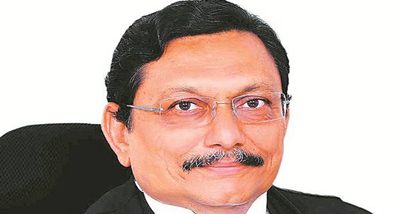Implement pay hike for subordinate judiciary ‘proactively’: Supreme Court

A Supreme Court Bench led by Chief Justice Sharad A Bobde has made it clear to the States and Union Territories that recommendations made by the Second National Judicial Pay Commission to nearly triple the pay and allowances for subordinate judiciary should be implemented ‘proactively’.
The Supreme Court highlighted, in its February 28, 2020 order, that a financially self-sufficient subordinate judiciary was pivotal for the existence of an independent judiciary.
“Self-reliance is the foundation of independence. The society has a stake in ensuring the independence of the judiciary, and no price is too heavy to secure it. To keep the Judges in want of essential accoutrements and thus to impede them in the proper discharge of their duties, is to impair and whittle away justice itself,” the court quoted from its judgment in the All India Judges Association case.
The original judgment in 1992 saw the apex court direct the States and the Union Territories to separately examine and review the pay structure of judicial officers as and when the States constitute pay commissions for its employees. In its review verdict in 1993, it specifically held that “judicial service is not a service in the sense of ‘employment’ and judges are not employees”.
The case became the basis for sustained efforts over the years to improve the service conditions of subordinate judicial officers. The latest Second Pay Commission report has suggested a revised pay structure for them. For example, the Commission has recommended that the starting pay for a Junior Civil Judge/First Class Magistrate should be hiked from ₹27,700 to ₹77,840. The Commission’s report was filed in the Supreme Court on January 29, 2020.
On February 28, Chief Justice Bobde’s Bench said despite judgments from the Supreme Court and interventions over the years, the States and Union Territories still do not spare enough for their judges. The Bench reproduced a table in its order to demonstrate that subordinate judiciary gets only .44% of the total expenditure of States and Union Territories. The Bench said this was both “inadequate and negligible”.
The apex court has now asked the State governments and the Union to file their responses to the Second Pay Commission’s recommendations within four weeks, if not, it would be presumed that they have outright accepted the Commission’s terms.
The apex court also appointed senior advocate P.S. Narasimha and advocate K. Parameshwar as amici curiae to intervene on the Supreme Court’s behalf. The States and the Union Territories would provide them with a copy of their responses to the Commission’s recommendations.
More importantly, the Bench has asked Mr. Narasimha and Mr. Parameshwar to evolve “institutional mechanisms to ensure that this Court is not compelled to intervene every time in respect of pay scales and conditions of service in respect of the subordinate judiciary”. The court has asked the Union Law Secretary to give his suggestions in this regard to the amici.
The court ordered the States to be represented by the Chief Secretaries in the next hearing. They shall be represented by their respective Advocates General.
Sign up for our weekly newsletter to stay up to date on our product, events featured blog, special offer and all of the exciting things that take place here at Legitquest.




Add a Comment